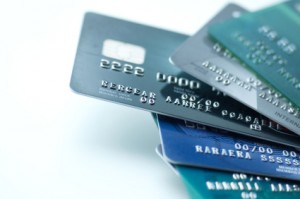
When the Credit CARD Act of 2009 was passed it gave credit card issuers plenty of time to implement the changes. A few minor changes went into effect last year, then many more this past February. Now the final rule limiting unreasonable fees is set to go into effect on August 22.
One change that may affect you immediately is the provision which not only requires your credit card company to give you a valid reason why before they increase your interest rate, but demands that they re-evaluate any rate increases made since January 1 of 2009.
Under the present rules, they don’t need a reason other than “I want to.” Now the reason must be tied to your use.
Taking it one step further – if they do increase your rate “for cause,” they must re-evaluate that increase every 6 months and reduce it if the reasons for the increase have changed, making you a better risk.
Another sweeping change involves late fees. Right now, your credit card issuer can charge you a $39 late payment penalty, even if your total balance is less than $39.
Under the new rules, that penalty cannot exceed $25 unless this is your second (or more) late payment within the past 6 months. And, even better for consumers carrying small balances, the late fee cannot exceed the minimum payment for that month. So if your minimum payment was $18, the late fee cannot exceed $18.
This rule does have a built-in “out” for the credit card issuers, however. They can charge more if they can demonstrate that the costs they incur as a result of late payments justify a higher fee.
One change that could have an adverse effect on consumers is the outright ban on inactivity fees.
Prior to the CARD Act, credit card issuers could charge a fee just to keep your card actively on their books awaiting your future use.
Now that they will not be allowed to charge an inactivity fee, many card issuers are turning to an annual fee that will be charged to all card holders across the board. However, in researching various cards, we see that some issuers are promising a refund of that fee if annual usage exceeds a set dollar amount or number of transactions.
Check your cardholder agreement to see if that applies to you.
Checking will soon become easier, because the new rules specify that all cardholder agreements be posted on line – so that consumers considering a new card can see the details before they sign on.
It also allows current cardholders to see the effects of any activity they might be considering… such as using the card for overseas transactions.
Author: Marte
CreditScoreQuick.com



